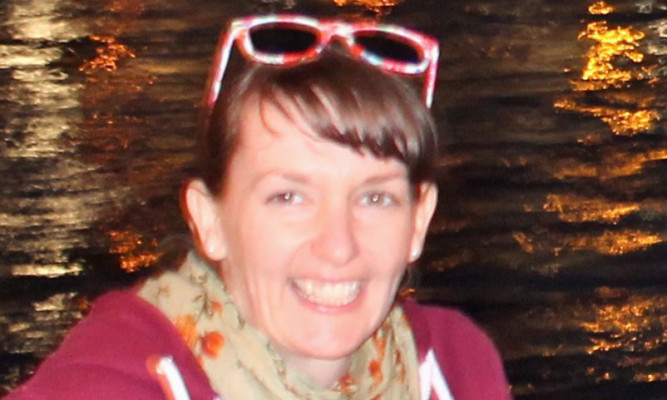A nurse who is being treated for a late complication of the Ebola infection is in a “serious condition”, the hospital treating her has said.
Pauline Cafferkey, who grew up in Crossagtes in Fife, was flown from Glasgow to an isolation unit at the Royal Free Hospital in Hampstead, north-west London, in a military aircraft in the early hours of the morning.
The hospital said she is in a “serious condition” in the special unit.
Bodily tissues can harbour the Ebola infection months after the person appears to have fully recovered.
An earlier statement from the Royal Free said: “We can confirm that Pauline Cafferkey was transferred from the Queen Elizabeth University Hospital in Glasgow to the Royal Free London hospital in the early hours of this morning due to an unusual late complication of her previous infection by the Ebola virus.
“The Ebola virus can only be transmitted by direct contact with the blood or bodily fluids of an infected person while they are symptomatic, so the risk to the general public remains low and the NHS has well-established and practised infection control procedures in place.”
People who have been in close contact with her are being monitored by Scottish health authorities as a precaution.
Ms Cafferkey, 39, was diagnosed with Ebola in December after returning to Glasgow from Sierra Leone via London.
She spent almost a month in an isolation unit at the Royal Free Hospital before being discharged in late January.
A statement from NHS Greater Glasgow and Clyde said Ms Cafferkey was admitted to the infectious diseases unit at Queen Elizabeth University Hospital in Glasgow on Tuesday after feeling unwell.
Director of public health, Dr Emilia Crighton, said: “Pauline’s condition is a complication of previous infection with the Ebola virus.
“The risk to the public is very low. In line with normal procedures in cases such as this, we have identified a small number of close contacts of Pauline’s that we will be following up as a precaution.”
Scotland’s First Minister Nicola Sturgeon tweeted: “My very best wishes to Pauline Cafferkey for a speedy recovery.”
Heath Secretary Jeremy Hunt also tweeted his best wishes, saying: “Thoughts with Pauline Cafferkey today as she battles Ebola for the second time.
“In best poss place under care of Dr Mike Jacobs at Royal Free.”
Scotland’s Chief Medical Officer, Catherine Calderwood, said everyone worked to ensure Ms Cafferkey had received all appropriate treatment and care prior to and during her transfer to the Royal Free.
She added: “Pauline is now being cared for in the best place possible, with specialists who have the most experience of looking after patients who have previously recovered from the Ebola virus.”
Ms Cafferkey contracted Ebola while working as a nurse at the Save the Children treatment centre in Kerry Town.
A report from the charity in February said she was probably infected as a result of using a visor to protect her face rather than goggles.
Ms Cafferkey’s temperature was tested seven times before she flew from Heathrow to Glasgow in December, and she had been cleared for travel.
She was placed in an isolation unit at Glasgow’s Gartnavel Hospital after becoming feverish, before being transferred by an RAF Hercules plane to London on December 30.
She was then transferred to the specialist isolation unit at the Royal Free.
Ms Cafferkey won an award at the the Pride of Britain Awards in central London on September 28.
She met the Prime Minister’s wife Samantha Cameron the following day at Downing Street, alongside other winners.
Ms Cafferkey has said that when she became ill she had felt like “giving up” as her condition became critical.
Of discovering she had the virus, she said: “Outwardly I just tried to be stoical about everything but inside, obviously, I was very frightened.”
The most recent outbreak of Ebola mainly affected three countries in West Africa: Guinea, Liberia and Sierra Leone.
More than 28,000 cases and more than 11,000 deaths have been reported by the World Health Organisation.
Dr Ben Neuman, lecturer in virology at the University of Reading, said he thought Ms Cafferkey’s case was only the second one where Ebola is reported to have “reactivated”.
Ebola has been shown to persist for weeks or even months in parts of the body and in bodily fluids such as breastmilk, semen and fluid inside the eyeball.
